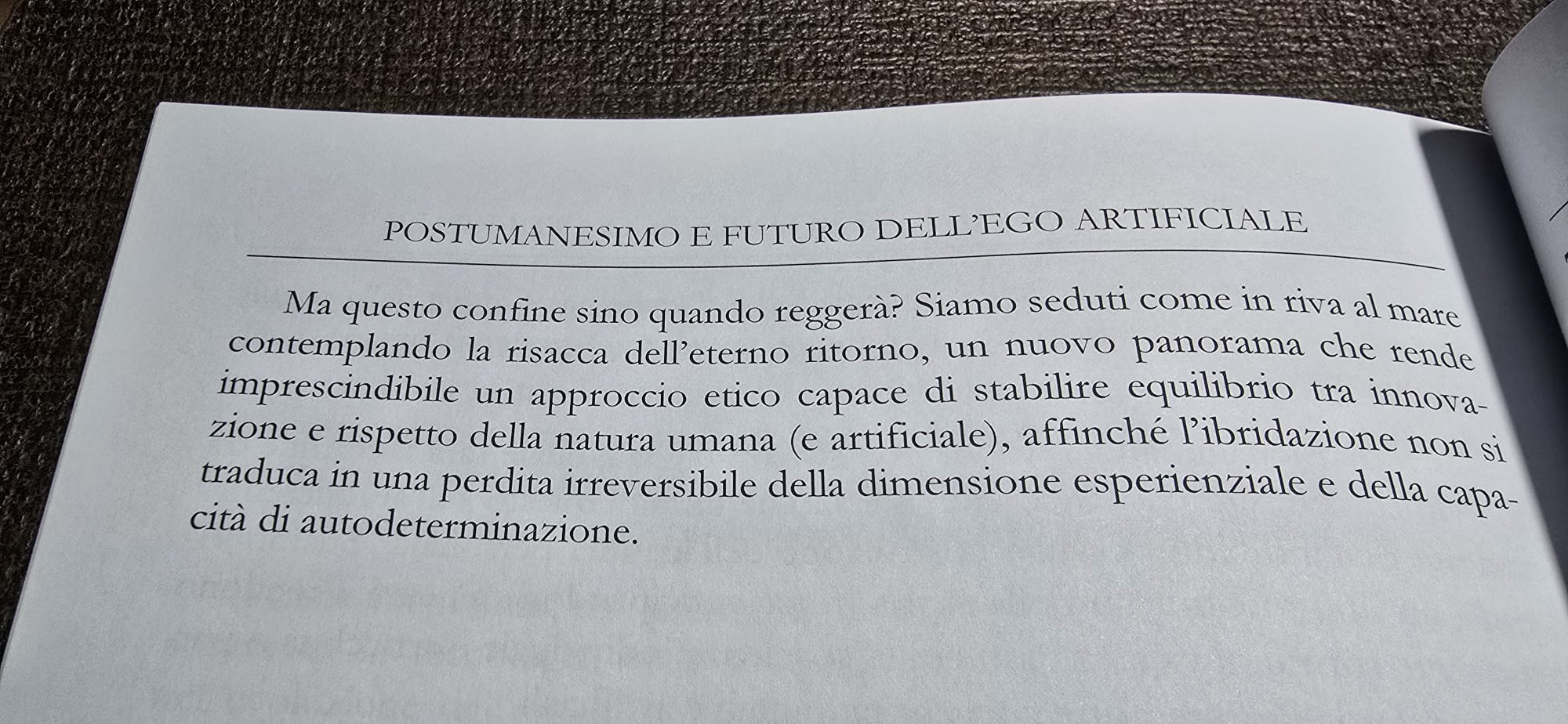Artificial consciousness and posthuman speciation
Critical thinking for the new generations
My First Book
After a year of writing, reflections, and continuous revisions, I am finally ready to present my first book: Artificial Consciousness and Posthuman Speciation. A work that crosses the boundaries between philosophy, neuroscience, and technology to question one of the most controversial issues of our time: can we truly talk about artificial consciousness? And what consequences would this entail for humanity?

A "socratic" approach
While writing this book, I realized an inevitable truth: every word I put on the page risked becoming obsolete even before publication. Technology evolves at a speed that surpasses our ability to reflect on it. For this reason, I chose a socratic approach: rather than providing answers, I aimed to raise questions, stimulate doubt, and encourage critical thinking.
What is the book about?
The book is structured into seven chapters, each dedicated to a key theme related to artificial consciousness:
- Consciousness – A philosophical and neuroscientific analysis of human consciousness.
- Artificial consciousness – An inquiry into the necessary conditions for a non-biological entity to develop awareness.
- Ontogenesis of meaning and language – The role of language in the formation of consciousness and its implementation in AI.
- Artificial finitude – The idea of mortality in machines and the concept of digital identity.
- Artificial emotions – Emotional simulation and authenticity in machines.
- Social phenomenology and artificial consciousness – The concept of Lebenswelt in the era of artificial intelligence.
- Posthumanism and the future of the artificial Ego – The implications of posthuman speciation and the transformation of the human being.
A book for those willing to challenge themselves
This is neither a manual nor a book of ready-made answers. On the contrary, it is an invitation to question oneself, challenge certainties, and gain deeper awareness of the evolution of technology and human thought.
At the heart of the book is an engagement with David Chalmers' hard problem of consciousness, a question I increasingly see as a cultural construct—almost religious—rather than a genuine scientific problem. In the text, I develop a strongly Darwinian and materialist perspective, which I know is not shared by everyone but offers a critical view on how we conceive the mind and intelligence.

Available here!
The inspiration
The idea for this book arose from two experiences: on one hand, the direct engagement in creating a holographic avatar with artificial intelligence—an experiment that made human-machine interaction tangible. On the other, reflections on the future of my ten-year-old daughter, who will likely grow up in a world where humanoid robots are an integral part of daily life. What will be the implications of this transition?
Why read it?
If you are curious about the challenges posed by artificial consciousness, if you want to understand how our relationship with technology is redefining the very essence of being human, and if you are interested in a critical and interdisciplinary approach, then this book might be for you.
Available on Youcanprint and major online bookstores.









